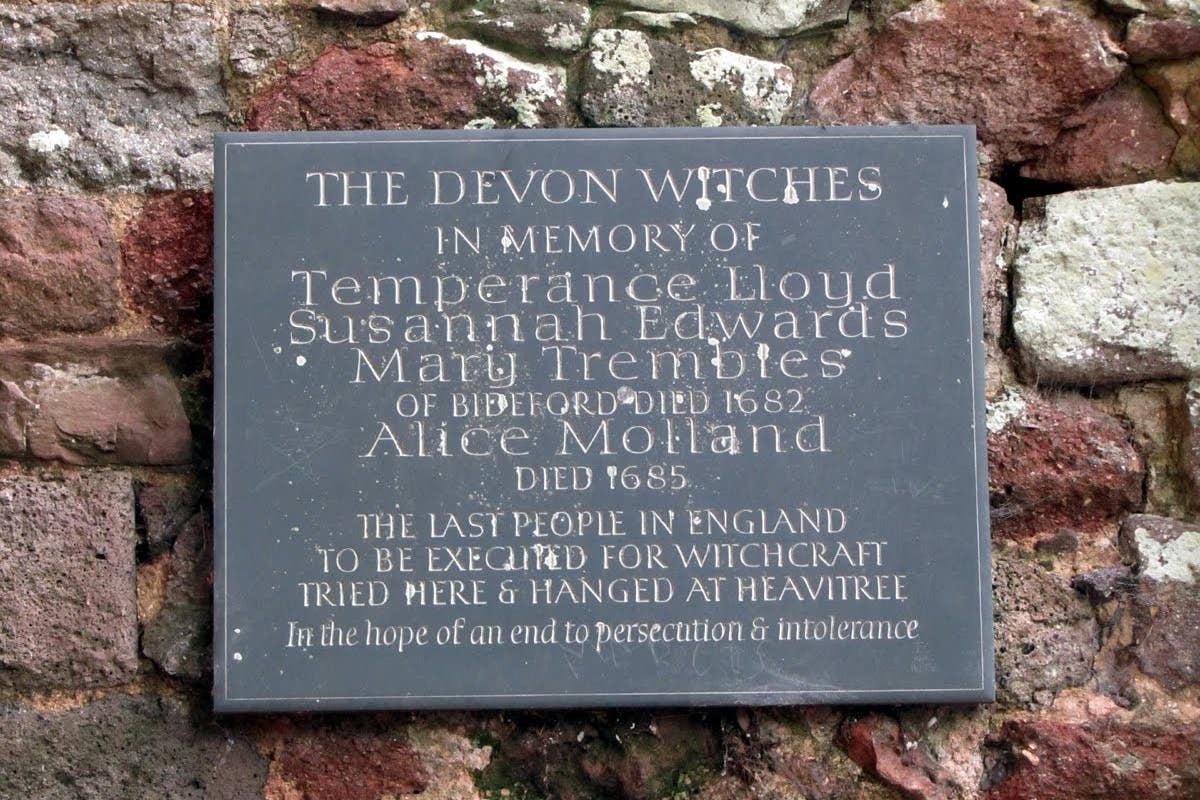Last executed ‘witch’ might have lived for years – research
Historian Professor Mark Stoyle discovered a spelling mistake might have misidentified the last executed ‘witch’.

The last woman believed to have been executed in England for witchcraft may have avoided the gallows, according to research.
Professor Mark Stoyle, a historian at the University of Southampton, believes a spelling error by a court official suggests that the accused woman was not hanged but instead lived for several years.
Alice Molland was sentenced at Exeter Castle, Devon, in 1685 for ‘bewitching’ three of her neighbours and she was presumed to have been executed in the city’s Heavitree area in the same year.
This mean that Ms Molland would have been England’s last executed “witch” and a plaque commemorating her death and that of three other women known as the Bideford witches – who were definitely hanged in 1682 – is located close to where she was condemned.
By the time of the 1685 trial, Avis Molland was a poor, middle-aged widow, who was burdened with loss – precisely the kind of woman who was likely to be accused of witchcraft in early modern England
But Prof Stoyle’s research suggests that the court documents from the time contained a spelling mistake and Alice Molland might actually have been called Avis Molland.
He said a clerical error could have caused the confusion and explained: “Court records from the 17th century were written in Latin, and in this form it would only have taken a single mis-stroke of the clerk of the court’s pen to transform ‘Avicia’ (Avis) into ‘Alicia’ (Alice).
“Almost nothing is known about Alice’s life and attempts to illuminate it have failed.
“So when I saw reference to an ‘Avis’ Molland in local archives – knowing Molland was an unusual name in Exeter – I was struck by its close resemblance. I immediately asked myself, did ‘Alice’ Molland ever exist? Is Alice, in fact, Avis?
However, Prof Stoyle said his research had uncovered several references to Avis including that she was married to a man named Cornelius Molland, who was a freeman of the city, in Exeter Cathedral in 1663 and went on to have several children.
The records also show that over a period of 10 years, three of their children died and at some point, Cornelius also died, leaving Avis a widow.
Prof Stoyle said: “By the time of the 1685 trial, Avis Molland was a poor, middle-aged widow, who was burdened with loss – precisely the kind of woman who was likely to be accused of witchcraft in early modern England.”
He added that circumstantial evidence suggests Avis was imprisoned at Exeter Castle and is recorded as testifying in 1685 against a woman accused of predicting an uprising of 2,500 weavers in a civil rebellion spreading across the West Country.
Prof Stoyle said it was possible that Avis overheard this woman boasting about the insurrection while visiting her husband who was imprisoned in the castle for rioting, which places her in the jail at the time of trial listed as Alice.
Avis died eight years after the supposed execution of Alice in 1693 meaning that if there was a simple spelling mistake, then the actual last executed witches in England would be the Bideford three – Temperance Lloyd, Susannah Edwards or Mary Trembles in 1682.
Prof Stoyle added: “The lack of records for Alice’s life, and the circumstantial evidence in support of the case for Avis being our condemned woman, points to a witch that lived.”
“But the truth is, despite all my diligent searching, we may never know for sure whether history has got it wrong.”
Professor Mark Stoyle’s full article – In Search Of Alice Molland: An English Witchcraft Will O’ The Wisp – will be published in the November edition of The Historian, the magazine of the Historical Association.
Bookmark popover
Removed from bookmarks